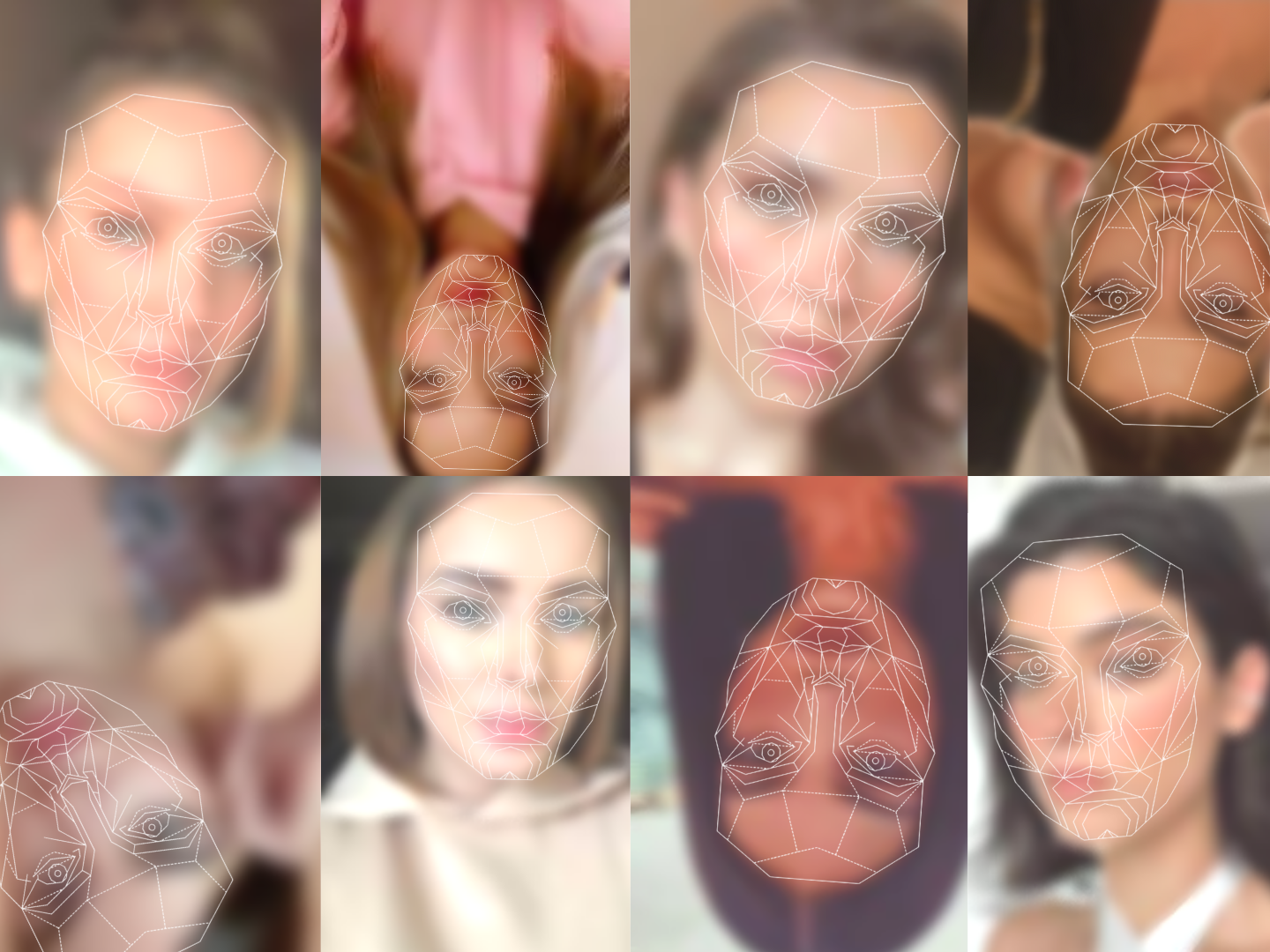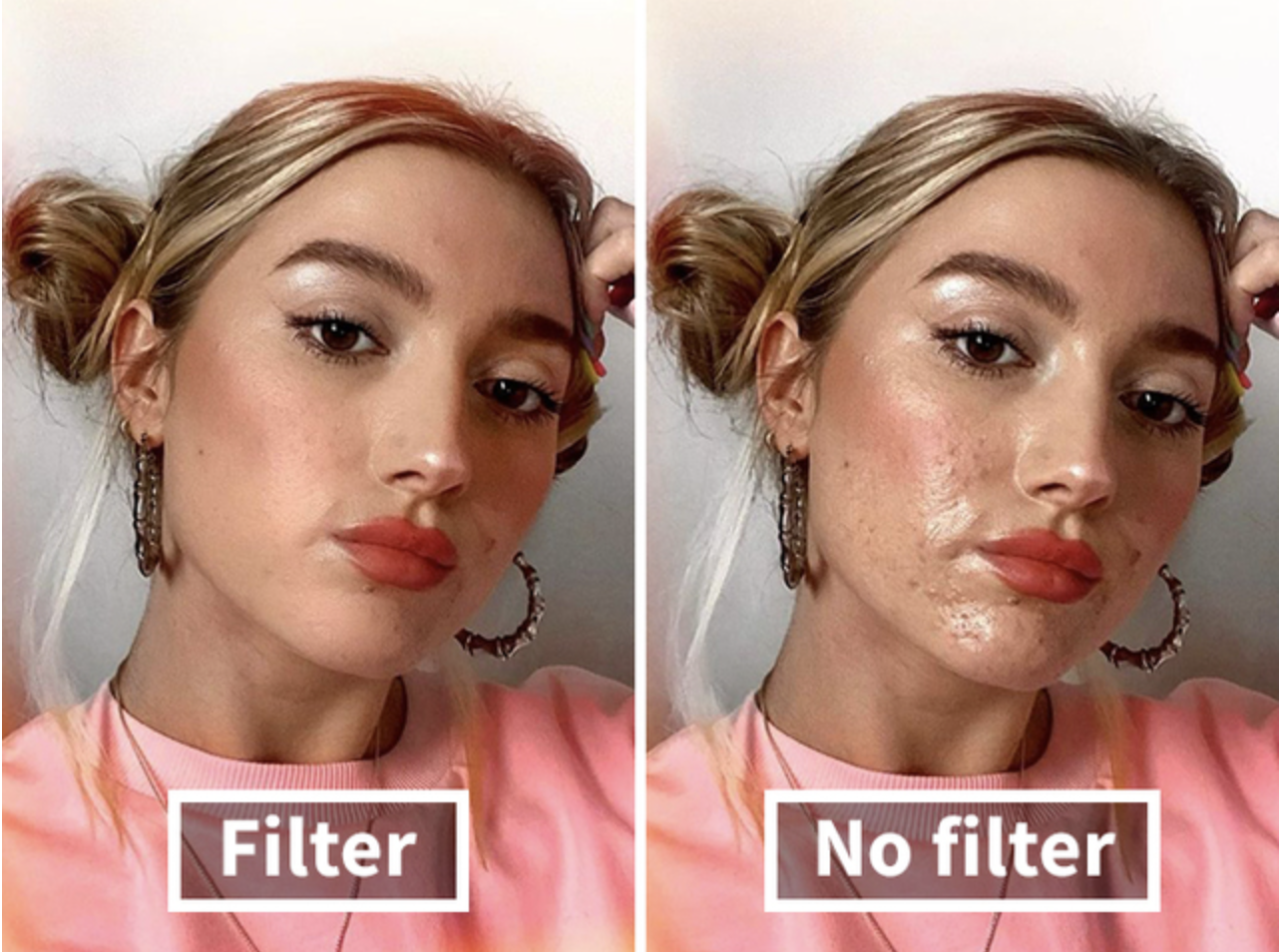Why You Should Ditch Social Media Beauty Filters
Image Courtesy: Strike FSU
Social media has recently taken beauty standards to a whole new level with the increased popularity of filters. What once started as fun filters that would give you heart eyes or animal ears has now turned into a selfie staple with filters that smooth, sculpt, and warp your natural features. It may seem like an amazing idea- who wouldn’t want a filter that plumps your lips, sharpens your jawline, and gives you a tiny nose? But these filters may be doing more damage than good. When using these ‘beauty’ filters, we compare our authentic selves to those social media has deemed ‘perfect,’ impacting our self-image and self-esteem.
Image Courtesy: deMilked
There seems to be a new filter every time I open TikTok: faux freckles, different hair and eye colors, makeup filters, etc. Some filters have even become unnoticeable, such as the beauty effect on Tik Tok (which doesn’t tell users that the creator is using a filter). Social media completely deceives its users, and these editing effects can create a cycle of comparison and cause new insecurities when filtered faces are passed off as unfiltered. Unfortunately, the issue doesn’t stop at filters—there are many apps designed to warp your body shape as well as your facial features, perpetuating an online culture where users portray different, glamorized versions of themselves on social media.
Image Courtesy: Preview
The prominence of filters and editing apps is based in peer pressure and societal beauty standards. It’s difficult to tell when someone is using a filter, which pressures young men and women into thinking they have to edit themselves to fit the beauty standard. If I’m being completely candid, in high school I went through a phase where I wouldn’t post a picture without editing my body and smoothing my face. Looking back on those pictures, I’ve realized that they neither look like me nor represent my natural beauty. Rather, they reflect conformity to peer pressures and the impossible beauty expectations placed on women. These filters may seem like fun and games, but in reality, they are creating new insecurities behind the filter.
Many celebrities and brands have spearheaded movements for natural beauty, encouraging users to ditch beauty filters. CVS Beauty kicked off its CVSFilterDetox Challenge in 2021. “The goal was to take a step back and analyze the impact that all this filtering is having on our mental health,” says Erin Condon, Vice President of Marketing at CVS Health. Influencer Sasha Pallari started the campaign #filterdrop in hopes of seeing “more real skin” on Instagram, urging influencers to disclose when they use a beauty filter. Through her campaign, Pallari demonstrates how beauty content can be misleading.
Image Courtesy: Byrdie
By ditching the filters, we can promote natural beauty, diversity, and inclusion for all. Filters create a ‘one size fits all’ beauty standard that takes away from the individuality of our beauty. While we all love filters, sticking to ones that don’t warp your natural looks can be beneficial to your mental health as well as to the self-image of others. It’s hard not to compare ourselves to others while scrolling through social media, but we can eliminate the pressure to fit a specific beauty standard if we all start showing our natural features and bodies. Let’s celebrate our own natural beauty.
Strike Out,
Writer: Sara Vigne
Editor: Noelle Knowlton
Graphic Designer: Allexandria Clemons
Tallahassee




